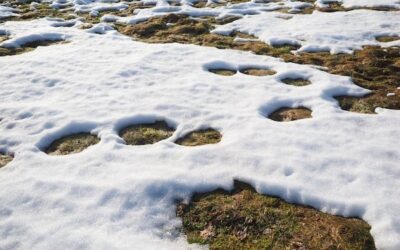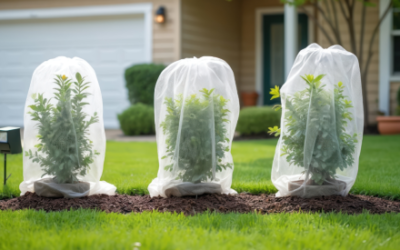As winter sets in, lawn care may feel like a distant memory, with the focus shifting to cozying up indoors and preparing for the spring. While grass growth slows considerably during the colder months, your lawn doesn’t completely go dormant. Beneath the surface, roots remain active, relying on sufficient moisture to sustain themselves. This raises the question: Does your lawn need watering in winter? The answer depends on several factors, including your local climate, soil type, and the condition of your grass.
Why Winter Watering is Important
Even though grass isn’t actively growing above ground in winter, the roots continue to develop. Maintaining proper moisture levels helps support this root activity, ensuring your lawn bounces back strong when spring arrives.
Winter watering also helps prevent a condition called desiccation. This occurs when grass loses more water than it can absorb, often caused by dry winds, sunny winter days, or extended periods without precipitation. Grass affected by desiccation may turn brittle and yellow, taking longer to recover as temperatures rise.
If your lawn was recently seeded or sodded in the fall, consistent moisture is even more critical. Young grass roots are still establishing themselves and are more vulnerable to drying out during the winter months. Without proper hydration, these new lawns may struggle to thrive come spring.
Does Your Lawn Need Winter Watering? Key Factors to Consider
Not every lawn requires supplemental watering in winter, but certain conditions may make it necessary:
- Prolonged Dry Spells: If your area experiences two or more weeks without measurable rain or snow, the soil may become dry enough to harm the roots.
- New Grass or Sod: Recently planted lawns need regular moisture to continue root development during the colder months.
- Well-Drained Soil: Sandy or well-draining soils lose moisture more quickly than clay soils. If your lawn tends to dry out faster, it may benefit from occasional winter watering.
- Warm Spells: Unseasonably warm winter days can activate grass growth, increasing its need for water.
How to Water Your Lawn in Winter
If your lawn shows signs of needing water, proper technique is essential to avoid causing damage:
- Water Midday: Always water during the warmest part of the day—usually late morning or early afternoon—when temperatures are above freezing. This ensures the water soaks into the soil before the temperature drops again.
- Water Sparingly: Grass needs much less water in winter than during the growing season. Aim for about ½ inch to 1 inch of water every two weeks, including any natural precipitation.
- Check Soil Moisture: Before watering, check the soil’s moisture levels by inserting a screwdriver or garden spade into the ground. If it penetrates easily, the soil has enough moisture. If not, it may be time to water.
- Avoid Frozen Soil: Never water when the ground is frozen. Water cannot penetrate frozen soil, leading to runoff and potential ice formation, which can harm your grass.
Common Winter Watering Mistakes
While winter watering can benefit your lawn under the right circumstances, it’s important to avoid these common pitfalls:
- Overwatering: Excess water can saturate the soil, leading to root rot and increasing the risk of fungal diseases. Water only when the soil shows signs of dryness.
- Ignoring Soil Type: Sandy soils dry out more quickly, while clay soils retain moisture longer. Understanding your soil type helps you determine how often watering is necessary.
- Assuming Snow is Always Enough: While snow does provide moisture, its coverage and melting patterns may not be consistent or sufficient to keep the soil hydrated.
- Watering During Freezing Temperatures: Applying water when temperatures are below freezing can create a layer of ice, damaging grass blades and roots.
Preparing Your Lawn for Spring Success
Taking care of your lawn in winter is a proactive step that ensures it will thrive when spring arrives. By providing the right amount of water during dry periods, you help your lawn build stronger roots, resist damage, and recover more quickly from winter stress. Winter watering is just one part of a comprehensive lawn care plan that includes regular maintenance, proper fertilization, and seasonal cleanups.At Jack’s Lawn Care & Landscaping, we understand the importance of year-round lawn care to keep your yard healthy and beautiful. Whether you need advice on watering techniques, help with seasonal maintenance, or a full lawn care plan tailored to your needs, we’re here to help. Contact us today to learn how Jack’s can keep your lawn looking its best through every season.



